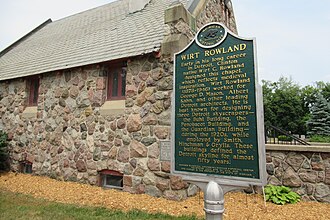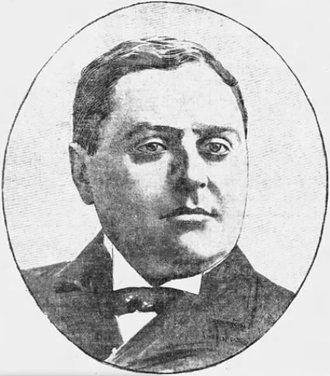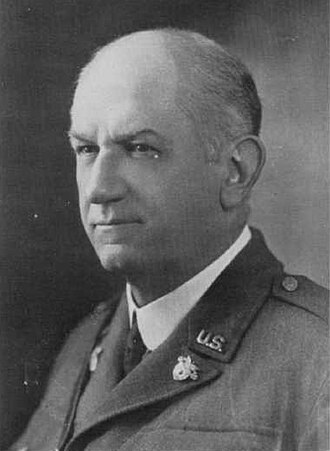Discover Your Roots
SIGN UPDiscover Your Roots
SIGN UPWirt is a male name of English origin, meaning "Worthy." This name has historical significance and has been used as both a surname and a given name. Notable individuals with the surname Wirt include American author Elizabeth Wirt and Czech gymnast Václav Wirt, while those with Wirt as a given name include American journalist Wirt Sikes and the character Wirt from the Diablo video game. The name also has geographical connections, with places such as Wirt in Indiana, New York, and Minnesota. Additionally, Wirt has been associated with an asteroid and a U.S. television station. Overall, Wirt holds a strong and dignified meaning, reflecting qualities of worthiness and significance.

Wirt Rowland (December 1, 1878 – November 30, 1946) was an influential American architect renowned for his significant contributions to Detroit's architectural landscape. Rowland's career began with remarkable apprenticeships at prestigious firms, leading to his pivotal role in shaping Detroit's skyline. Noteworthy projects include the iconic Guardian Building, celebrated for its innovative design and use of vibrant colors. Rowland's artistic vision and expertise were also evident in numerous other structures, such as the T. B. Rayl Company Building, Pontchartrain Hotel, and various schools in Detroit. His collaboration with renowned architects and his role in designing prominent landmarks solidified his legacy in the architectural world. Despite the challenges posed by the Great Depression, Rowland persevered and continued to leave his mark through his partnership with Augustus O'Dell and his involvement in the design of the Kirk in the Hills church. Rowland's profound impact on Detroit's architectural heritage and his significant body of work remain a testament to his enduring influence in the field of architecture.

William Wirt Sikes (November 23, 1836 – August 18, 1883) was an influential American journalist and writer renowned for his extensive contributions to Welsh folklore and customs. Born in Watertown, New York, Sikes overcame childhood illness and hearing impairment to pursue a career in journalism and literature. He began his professional journey as a typesetter and contributor for local newspapers, before venturing into writing and publishing stories and poems. Sikes explored various roles in the journalism field, including working in Chicago and New York City, where he developed a keen interest in the lives of the underprivileged. His literary prowess led to the publication of novels and stories, earning him recognition as a prolific writer. In 1876, Sikes was appointed U.S. Consul at Cardiff, Wales, where he delved into the rich tapestry of Welsh folklore and mythology. His monumental works, "British Goblins; Welsh Folk-Lore, Fairy Mythology, Legends, and Traditions" and "Rambles and Studies in Old South Wales," are enduring testaments to his dedication to preserving Welsh cultural heritage. Sikes' legacy as a multifaceted writer and journalist lives on through his extensive body of work and his significant contributions to the literary world.

Wirt Dexter Walker (September 1, 1860 – April 24, 1899) was a prominent Chicago lawyer, known for his successful legal career and his contributions to the local community. Born in Chicago, Walker graduated from Yale University before inheriting a significant sum of money upon his father's passing. He established his own legal practice in 1883 and later served as the secretary of the University Club of Chicago in 1887. Despite facing health challenges that led to his blindness, Walker remained dedicated to his work until his retirement, after which he focused on traveling. In 1894, he married Marie Winston. Walker's legacy also includes the creation of the Blythewood Farms summer cottage in Berkshire County, designed by local architect H. Neill Wilson. Following his passing, his wife inherited a substantial annual income and the Blythewood estate. The property eventually transitioned to the Wirt D. Dexter Art Gallery in Chicago before being sold to a prominent Chicago figure. Walker's impact on the legal and social landscape of Chicago continues to be remembered and celebrated.

Colonel Wirt Robinson (16 October 1864 – 19 January 1929) was an American army officer, naturalist, and esteemed professor. Born in Fernley, Buckingham County, Virginia, he developed a keen interest in natural history at a young age, which was nurtured by his father and maternal grandfather. Robinson's career saw him serve as a professor of chemistry, mineralogy, and geology at the U. S. Military Academy, as well as a brief stint as a military science instructor at Harvard University. He authored the textbook "Elements of Electricity" for cadets at the Military Academy and made significant contributions to the field of natural history, particularly through his extensive collections and observations during his travels. Notably, a Venezuelan opossum species, Marmosa robinsoni, was named in his honor. Robinson's legacy also includes numerous species, such as a bird and a beetle, named after him. His impactful work and contributions to academia and natural history continue to be recognized and celebrated.

All images displayed on this page are sourced from Wikipedia or Wikimedia Commons.We use these images under their respective Creative Commons or public domain licenses. Wherever applicable, author attributions and license information are provided. If you believe an image is used incorrectly or outside its license terms, please contact us so that we can review and correct the issue.